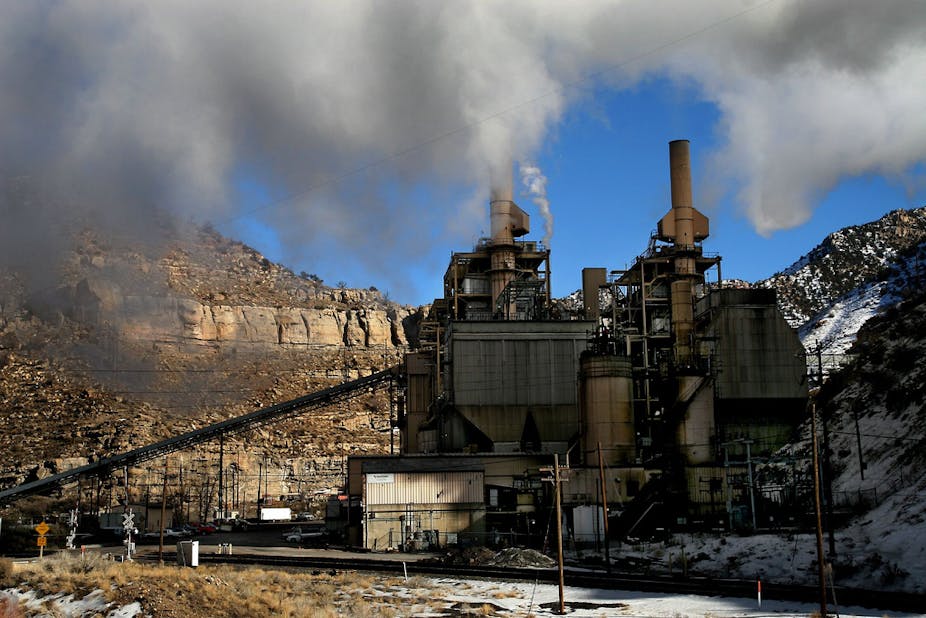It looks as though everyone will be happy to sign the next global climate agreement, due in 2015. Why? Because there will be very little in the agreement that will force countries to act on climate change.
The most recent climate negotiations in Germany - which I attended as a researcher to observe negotiations and interview negotiators on the topic of decision making and climate governance - focused on designing the next global climate agreement. The negotiations gave some worrying signs on where the international community is going.
A recent trend in politics and academia has been to look at the next global climate agreement in terms of three aspects: ambition, compliance and participation. But all is not well with this holy trinity. Tensions exist, particularly between participation on the one hand, and ambition and compliance on the other.
Simply put, trying to get complete global participation could lead to a weak laws and low emissions-reduction targets.
New Zealand observed this tension on the opening day of negotiations. If there is a top-down agreement where emissions reductions are scientifically determined and then distributed among countries, New Zealand worried it would be difficult to get all parties involved. But a bottom-up model in which countries choose their own targets won’t create the ambition to stop the dangerous impacts of climate change. They quickly declared participation was of “first and foremost” importance for the 2015 agreement.
Universal participation, flexibility and respect for “national circumstances” are quickly becoming the commandments of international climate negotiations. These are also the main priorities for Australia and its allies in negotiations.
Along with others such as Canada, the US, New Zealand, Norway and Japan, Australia is part The Umbrella Group of industrialised non-EU countries. The group is renowned for being a “spoiler” of negotiations and has been exceptional in influencing the international dialogue and outcomes on climate. The discussions on the 2015 agreement have been no exception.
The Umbrella Group’s primary goal is making sure any future agreement has the right aspects to allow Umbrella Group parties to join. This is clear from their submissions to the climate negotiations.
A few ideas tend to reappear throughout the official submissions of Umbrella Group members. Norway emphasises the importance of guaranteeing “broad participation” through having flexible arrangements for countries to meet their emissions targets.
The US has renewed calls for its “pledge and review” system by declaring that if parties choose their own “nationally appropriate” targets it will actually increase ambition. The idea that self-determined targets will lead to ambitious mitigation defies both logic and the history of the climate negotiations. But Australia is pushing the same argument, putting forward the idea of “national schedules” where countries can inscribe their own targets along with timelines and policies for meeting them.
From the Australian perspective, insisting on a bottom-up approach is logical. It keeps us close to the US and fits our own domestic circumstances.
The Liberal party is highly favoured to win the next federal election. Tony Abbott has promised to repeal the carbon tax and dismantle the Department of Climate Change (which just so happens to contain Australia’s negotiating team).
Even if Abbott fails to abolish the carbon tax, Australia will not be looking to increase its national emission targets anytime soon. The man who once described climate change as “absolute crap” is unlikely to be open to ratifying a progressive global climate agreement.
Some other members of the Umbrella Group find themselves in similar positions. The US already has major institutional hurdles in ratifying any international treaty that doesn’t involve trading things or blowing them up. On top of that they have oppositional political system which can’t even agree to background checks on gun buyers, let alone a global climate deal. Even Australian economist Ross Garnaut told diplomats during a special workshop at the negotiations that no-one could really believe the US would ratify a legally binding climate deal in 2015.
There is a common thread among most members of the Umbrella Group: domestic constraints are severely limiting what they can agree to internationally. So, instead they want their national realities to shape the next global agreement. From their perspective, national concerns should shape the global regime, not vice versa.
Trying to appease and include parties such as Australia will likely lead to a lowest-common-denominator outcome. It happened with Kyoto when the protocol was significantly weakened to accommodate the US who could then not ratify it.
If we are not careful then history may repeat itself. We need to be aware that getting everyone on board may very well sink the next climate agreement.

